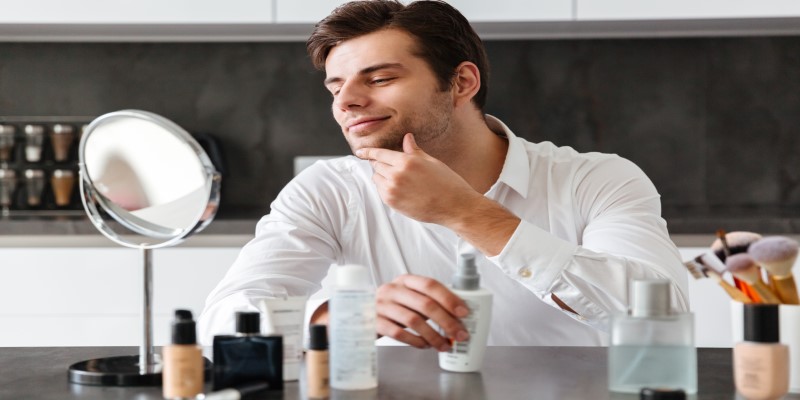Protecting the general health of your eyes requires protecting them from ultraviolet (UV) rays. It's more crucial than ever to recognize the hazards and put preventative measures in place because UV radiation from the sun and artificial sources is becoming more and more common. This article explores UV light's impact on the eyes, the many kinds of UV rays, and practical measures you may take to protect your vision. Learn how to protect your eyes from damaging UV rays to start now.
Understanding UV Light:
One type of electromagnetic radiation that the sun emits is UV light. It is separated into three categories:
- UVA Rays: Profoundly penetrating the skin, UVA rays are linked to aging and long-term skin damage.
- UVB Rays: Mostly damage the skin's surface and cause sunburn. These more powerful rays have the potential to damage the eyes directly.
- UVC Rays: These are generally not harmful to human health because they are mostly absorbed by the Earth's atmosphere.
- UV radiation mainly originates from the sun.
- Artificial sources consist of beds for tanning, specific kinds of bulbs (such as fluorescent and halogen), and a few types of welding equipment.
The Effects of UV Light on Your Eyes:
Short-term Effects:
- Photokeratitis: A painful sunburn-like disorder that affects the cornea. There might be redness, tears, and temporary blindness as symptoms.
- Conjunctivitis: UV radiation can cause inflammation of the conjunctiva, the membrane covering the eyes.
Long-term Effects:
- Cataract: A clouding of the eye's lens that impairs vision is called a cataract. Extended exposure to UV radiation is a significant risk factor.
- Macular Degeneration: Associated with prolonged UV exposure, this condition is the primary cause of vision loss in older persons.
- Pterygium: A conjunctival tissue growth that can spread over the cornea and is frequently brought on by extended UV exposure.
- Skin Cancer Around the Eyes: The skin around the eyes is more vulnerable to UV rays, which raises the possibility of skin cancer there.
The Best UV Light Protection Methods for Your Eyes:
It's essential to take proactive measures to guard your eyesight and raise awareness of the dangers that UV rays pose to your eyes.
Full-Block UV Sunglasses:
- Choose sunglasses that indicate they prevent entirely UVA and UVB radiation.
- Ensure your sunglasses provide complete coverage by selecting wraparound designs to protect your eyes from side-on light.
- Polarized lenses improve comfort and lessen brightness, especially when driving or engaging in outdoor activities close to reflecting surfaces like snow or water.
Contact Lenses that Block UV Rays:
- UV protection is becoming a common extra feature on contact lenses.
- Although these lenses can filter a considerable quantity of UV light since they do not completely cover the eye or surrounding skin, they should still be combined with UV-blocking sunglasses.

Transitional or Photochromic Lenses:
- When exposed to sunlight, these lenses instantly darken, offering practicality and efficient UV protection.
- Photochromic lenses can be an excellent option for those who use prescription glasses since they adjust to varied lighting situations.
Prescription Sunglasses:
- Prescription sunglasses offer UV protection and clear vision for those who require vision correction.
- Complete protection may be ensured by customizing them with the same high degree of UV blocking as non-prescription sunglasses.
Hats with Wide Brims:
- By wearing a hat with a broad brim, you may cut your exposure to UV rays by up to 50%.
- A hat can provide all-around protection against damaging sun exposure with UV-blocking eyewear.

Particular UV Protection for Specific Activities:
- Skiing or Snowboarding: When skiing or snowboarding, protect your eyes from the reflected UV from snow and the increased UV exposure at high altitudes by using ski goggles with UV protection.
- Water Sports: When swimming, sailing, or surfing, polarized-lens goggles or sunglasses offer excellent protection and can help decrease glare.
- Welding with UV-Emitting Devices: When using UV-emitting devices or welding, always use protective eyewear to block UV radiation when exposed to artificial UV sources.
- UV-Reflective Windows: If you live in an area with plenty of windows, consider installing window films with UV filters for additional safety indoors. These films offer an additional layer of protection by blocking a large portion of UV radiation while letting natural light through.
- Consistent Use of Eye Protection: Even on overcast days or throughout the winter, wear UV-blocking sunglasses daily since the sun's rays can still enter your eyes via clouds or be reflected off surfaces like snow and ice.
Why UV Protection is Essential?
Frequency of Vision Problems:
- Globally, millions of individuals experience eye disorders linked to UV radiation.
- The danger of diseases like cataracts and macular degeneration increases as the population ages.
Enhanced UV Exposure:
- Surfaces that reflect light, such as snow, sand, and water, can significantly increase UV exposure.
- In particular, extreme vigilance is needed when skiing, surfing, or at the beach.
Factors Associated with Climate Change:
- Depleting the ozone layer may increase the amount of UV radiation that reaches Earth, increasing the risk of UV-related eye injury.
Protective Measures Against UV Radiation:
Limit Your Exposure:
- Avoid clear of direct sunlight from 10 a.m. to 4 p.m. during peak hours.
- When possible, seek shade, especially when engaging in outside activities.
Frequent Eye Tests:
- Make an appointment for a thorough eye checkup to monitor your vision and get customized UV protection recommendations.
Take Care While Using Artificial Sources:
- Limit your time spent near UV-emitting lights and tanning beds.
- Wear protective eyewear when doing tasks like welding that expose you to UV rays.
Choosing a Healthier Lifestyle:
Nutrition and Diet:
- Eat foods high in antioxidants, such as fruits and leafy greens, to support eye health in general.
- Zeaxanthin and lutein are two nutrients that can aid in filtering damaging light.
- Drinking plenty of water.
- To preserve general health, including eye health, drink enough water.
Don't Smoke:
- Smoking raises the risk of age-related macular degeneration and cataracts.
Conclusion
It is essential to shield your eyes from UV rays to preserve your eyesight and general eye health. You may prevent potential harm to your eyes by being aware of the dangers of UV exposure and taking preventative steps. Remember to prioritize routine eye checkups, use protective eyewear, and avoid too much sun exposure. Your vision is priceless, so protect it right now by taking preventive measures. Contact your eye care specialist immediately to arrange an eye test or for further information.







